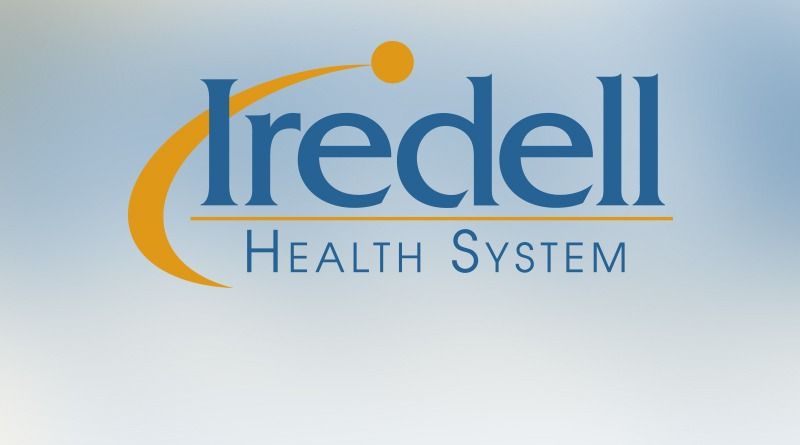Receiving Complaints About Your Snoring? It May Be Time for a Sleep Test

Are you tired of tossing and turning all through the night – waking up exhausted and stumbling through the day? You are not alone. Nearly 70 million Americans of all ages and socioeconomic classes have trouble sleeping.
Sleep disorders are so prevalent in today’s society that the Centers for Disease Control and Prevention (CDC) has classified insufficient sleep as a public health epidemic. The pervasiveness of sleep disorders is why Better Sleep Month, during the month of May, is so important.
“I think for all of us, good sleep is increasingly hard to come by. It’s critically important, perhaps more important than most of us realize,” said Skip Meador, Iredell Health System’s director of cardiovascular services, who oversees the Health System’s sleep lab.
Why is it important to get good sleep?
Sufficient sleep is vital for basic functionality throughout your day. It can enhance your decision-making skills, aid in your productivity and alertness throughout the day, and can even improve your relationships with others.
“If we get enough sleep, we are more well-balanced, more productive, and tend to function much more positively with those around us,” said Meador.
Consequently, sleep deprivation can negatively affect your health in a variety of ways. Insufficient sleep can impact your ability to learn, focus, and react properly throughout your day. It may also affect your judgment toward others and contribute to feeling worried or frustrated in social situations.
According to Meador, sleep deficiency can also contribute to chronic health problems, including heart disease, decreased immune system activity, high blood pressure, stroke, diabetes, obesity, and depression.
In a study by the CDC, adults who got less than 7 hours of sleep per a 24-hour period were more likely to report 10 chronic health conditions compared to those who got enough sleep.
How do I know if I am getting sufficient sleep?
The average adult needs a minimum of 7 hours of sleep per night. Teenagers, on the other hand, need 9 hours or more.
In North Carolina alone, the CDC reported that 32-35% of individuals get less than 7 hours of sleep per night.
Signs of sleep disorders may include daytime sleepiness, morning headaches, inability to concentrate, depression, moodiness, restless legs, and waking up feeling tired and not refreshed. Additionally, if your spouse or roommate mentions that you snore or gasp for air during the night, you may have a sleep disorder.
What can I do?
According to Meador, tips to promote better sleep include:
• Exercising throughout the day.
• Maintaining a consistent sleep routine.
• Sleeping in a quiet, dark, less cluttered room.
• Setting a cooler room temperature.
• Eliminating screen time on electronic devices, like TV and phone, before bed.
• Avoiding caffeine and large amounts of alcohol before bedtime.
If your spouse is still complaining about your snoring, or if you notice other sleep deprivation symptoms, it may be time for a sleep study.
A sleep study, also called a polysomnography, is a non-invasive, overnight exam that can help you pinpoint your sleep problem and determine the best way to treat it.
Iredell Health System’s Sleep Lab
Partnered with MedBridge Healthcare, an accredited sleep center program, Iredell Health System’s outpatient sleep lab allows specially trained technicians to monitor your sleep to diagnose and treat your sleep disorder effectively. Located inside Iredell Memorial Hospital, the sleep lab can be effective in helping you return to a normal, active and energetic lifestyle.
At the sleep lab, patients generally arrive around 7 pm to wind down before going to sleep. During the overnight sleep study, small sensors monitor your heart and brain waves, oxygen levels, pulse, and movement. Meador explains that the sensors are loosely placed so that you can be as comfortable as possible.
You may worry about being able to go to sleep during a sleep study; however, according to Meador, a very small percentage of people actually have trouble sleeping during a sleep study.
“Most patients can sleep well and receive good, normal test results that help them understand their sleep issues,” said Meador.
At around 6 am, you can leave the sleep lab. Showers are available for anyone wishing to use them before departing.
Testing is available Monday through Friday. After the study is completed, it is scored and sent to a sleep physician for interpretation. The final report is then compiled and sent to your referring physician, who will discuss the results with you.
According to Meador, if you have co-morbidities such as heart or lung disease, it is important to have your sleep study completed in a hospital-based sleep lab so that hospital resources are readily available if needed.
If you are concerned about your sleep habits and would like to partake in a sleep study at Iredell Health System’s sleep lab, you should contact your primary care physician for a referral.
About Iredell Health System
Iredell Health System includes Iredell Memorial Hospital; Iredell Home Health; Iredell Wound Care & Hyperbaric Center; Community and Corporate Wellness; Occupational Medicine; the Iredell Physician Network and more. Iredell Memorial Hospital is the largest and only nonprofit hospital in Iredell County. The comprehensive healthcare facility has 247 beds; more than 1,700 employees; and has 260 physicians representing various specialties. Centers of excellence include Women’s and Children’s; Cardiovascular; Cancer; Surgical Services and Wellness & Prevention. The mission of Iredell Health System is to inspire wellbeing. For a comprehensive list of services and programs, visit www.iredellhealth.org.
Originally posted by Greater Statesville Chamber of Commerce via Locable
Greater Statesville Chamber of Commerce
116 N Center St
Statesville, NC 28677
704-873-2892
www.statesvillechamber.org

